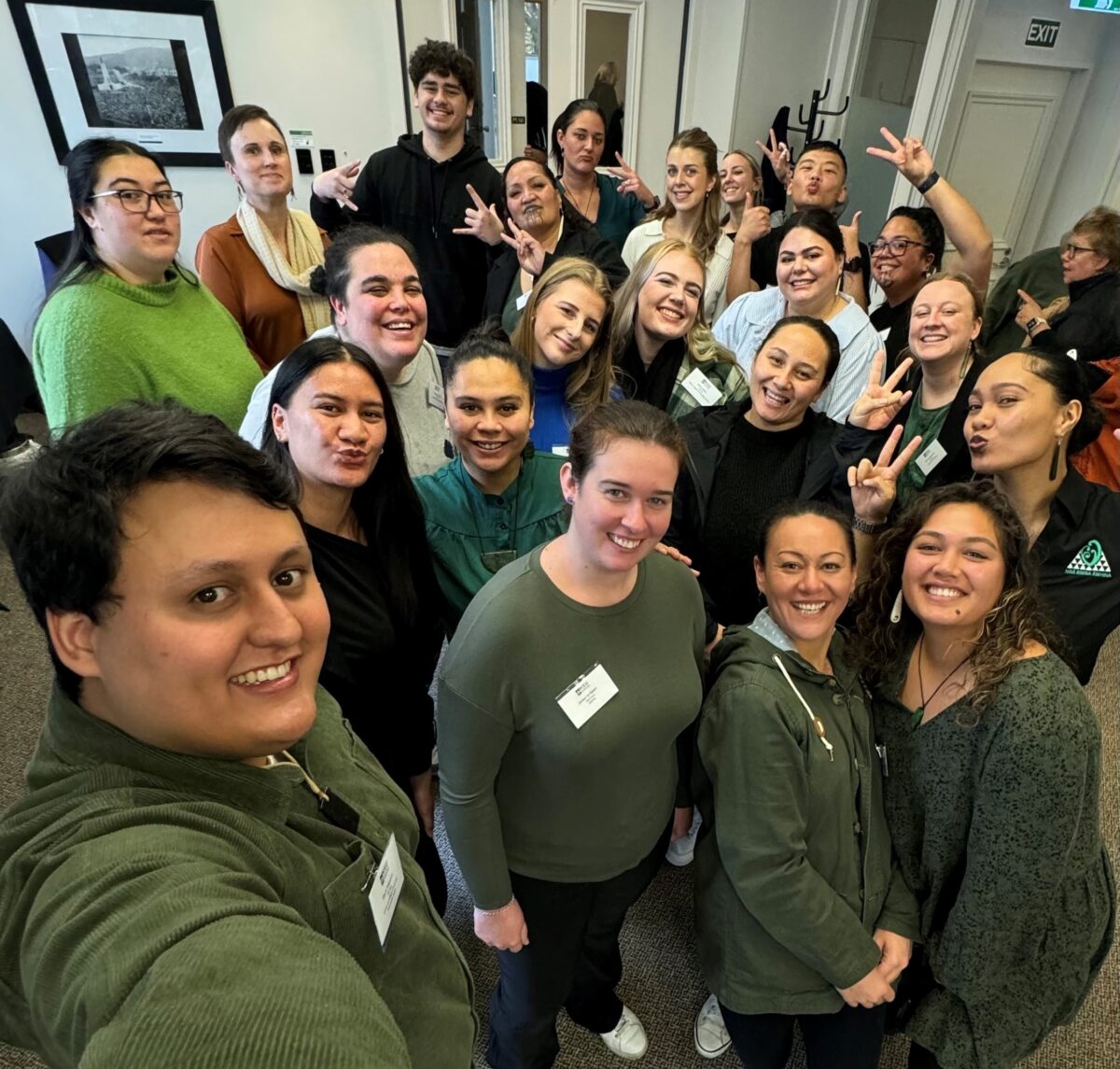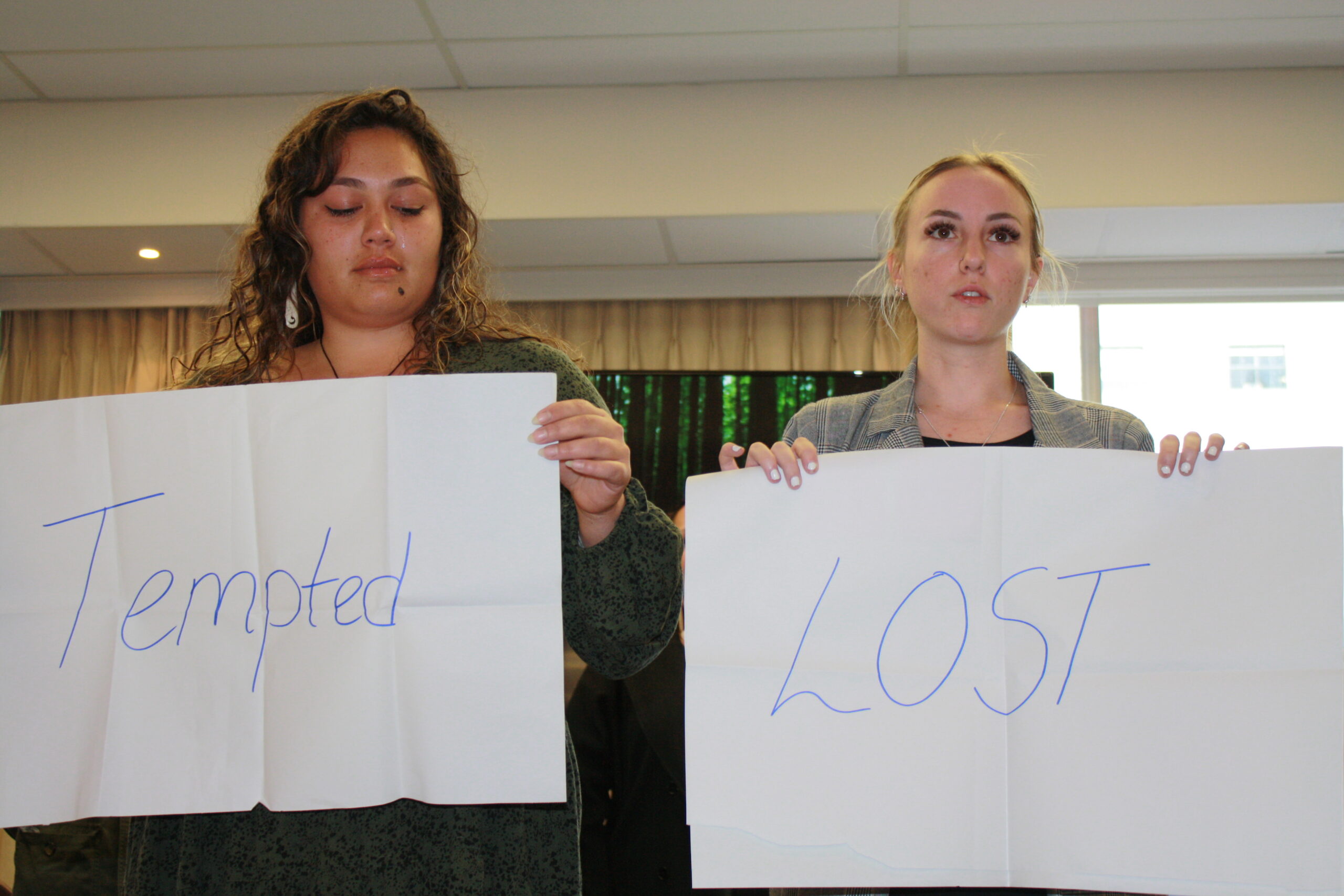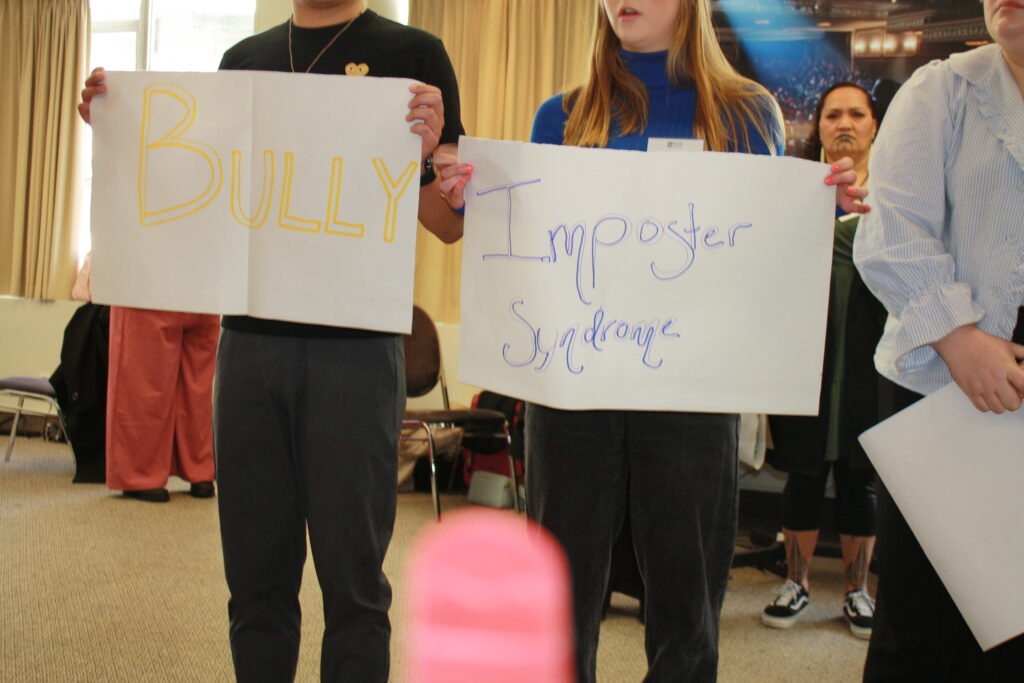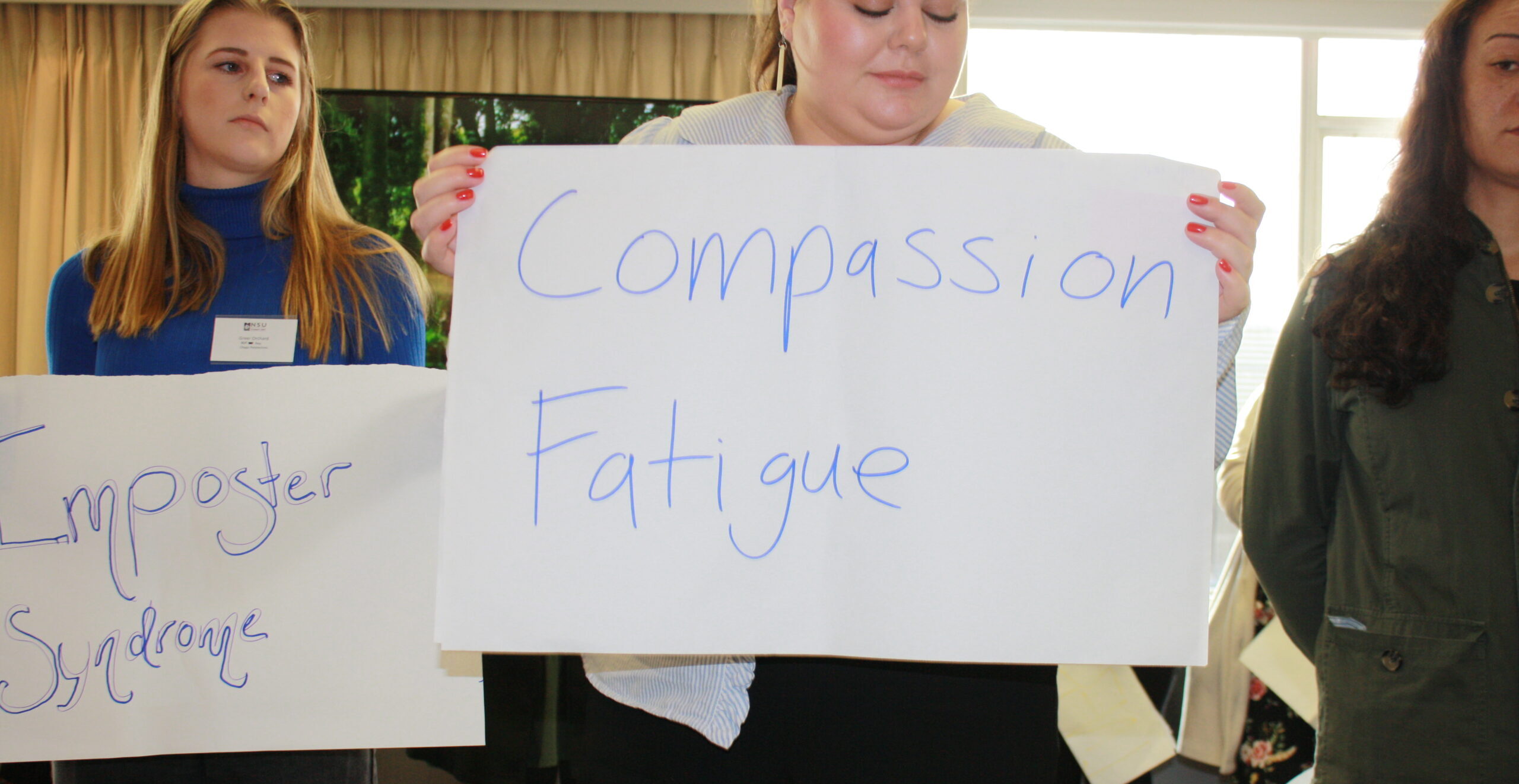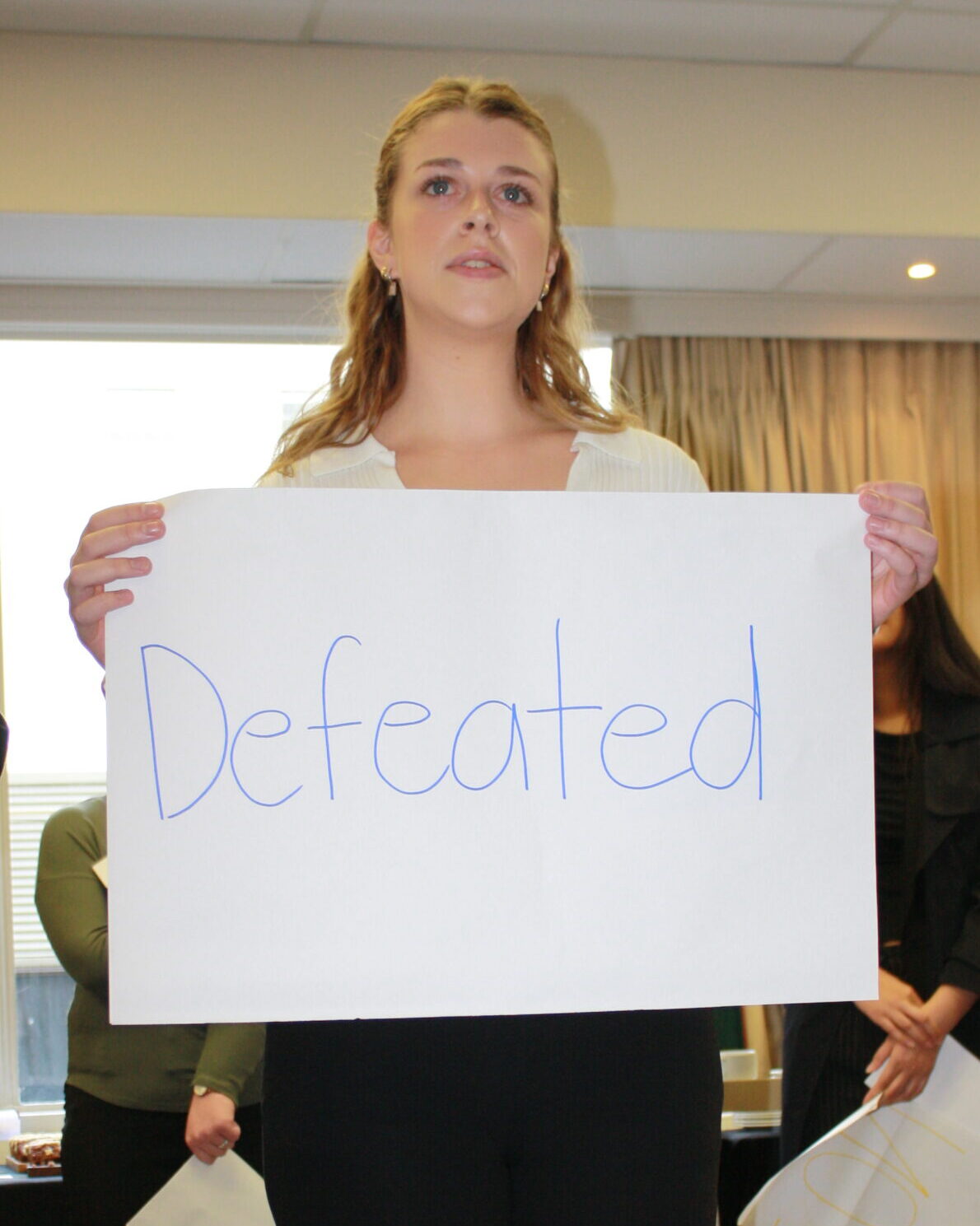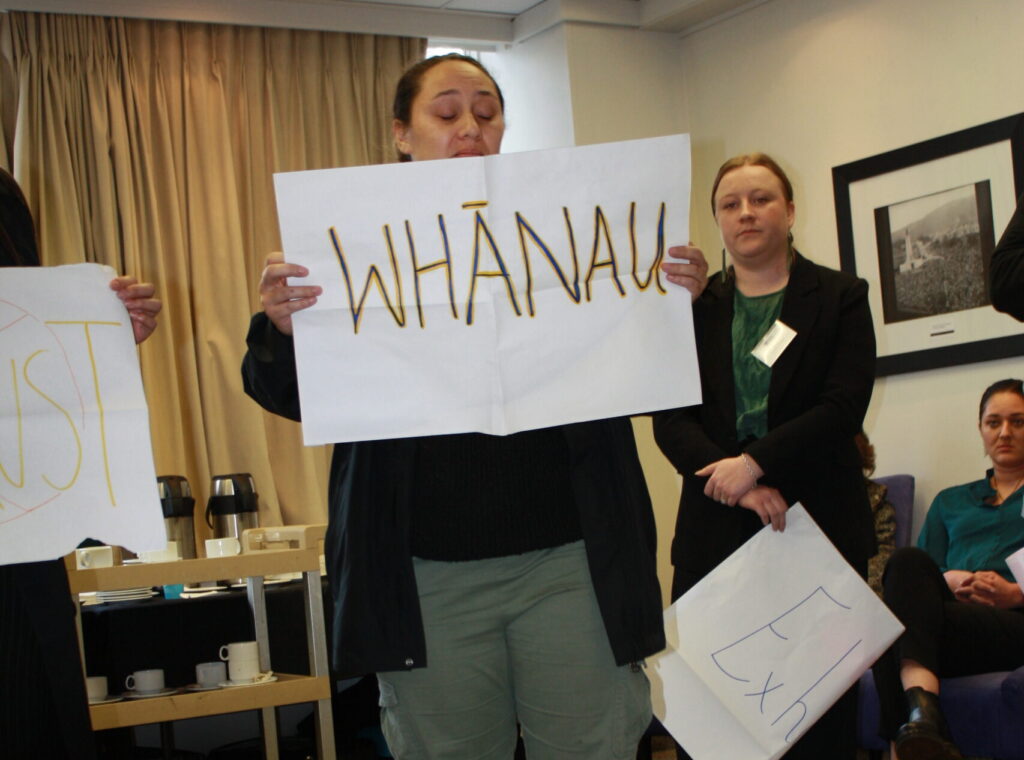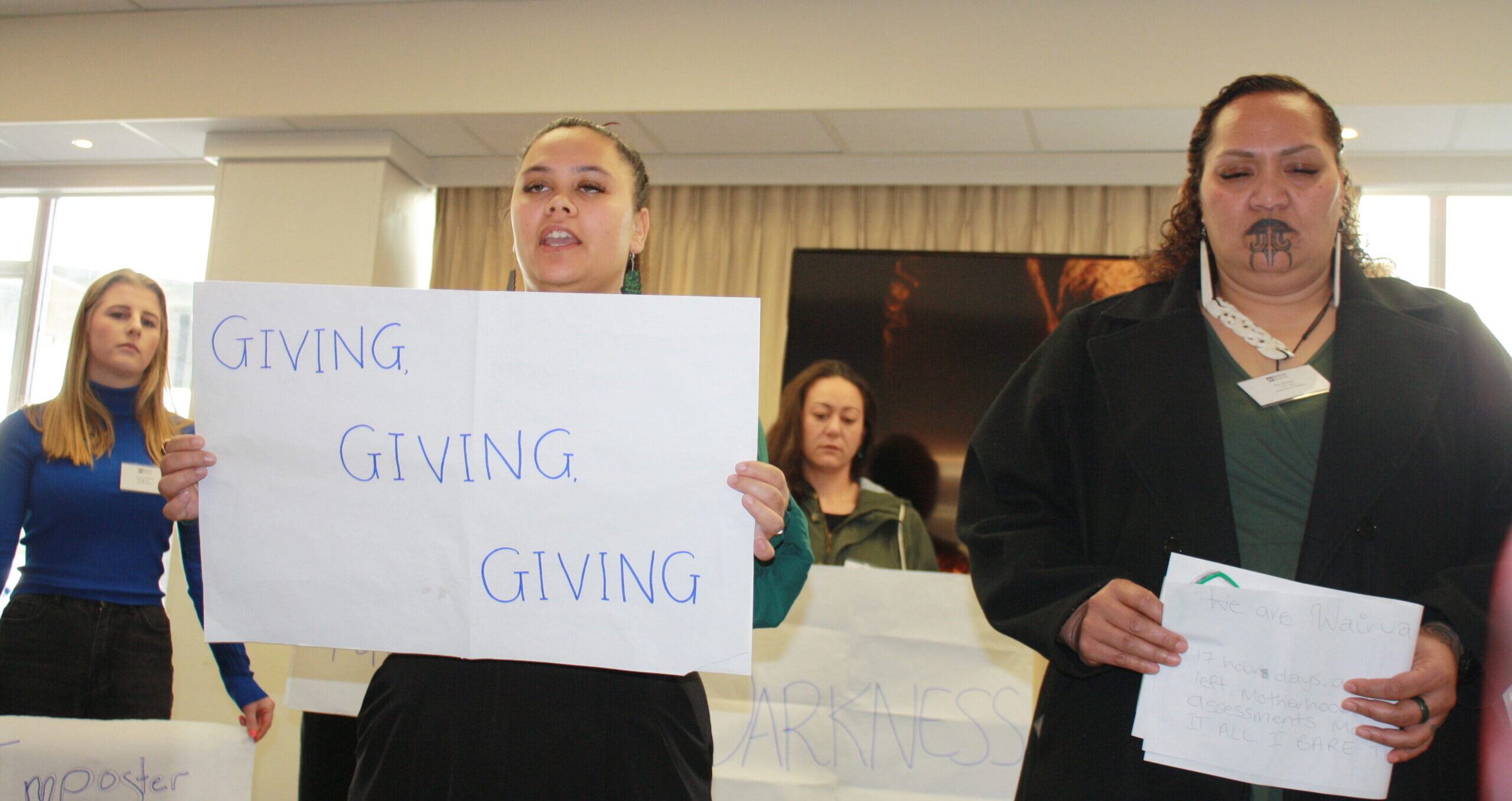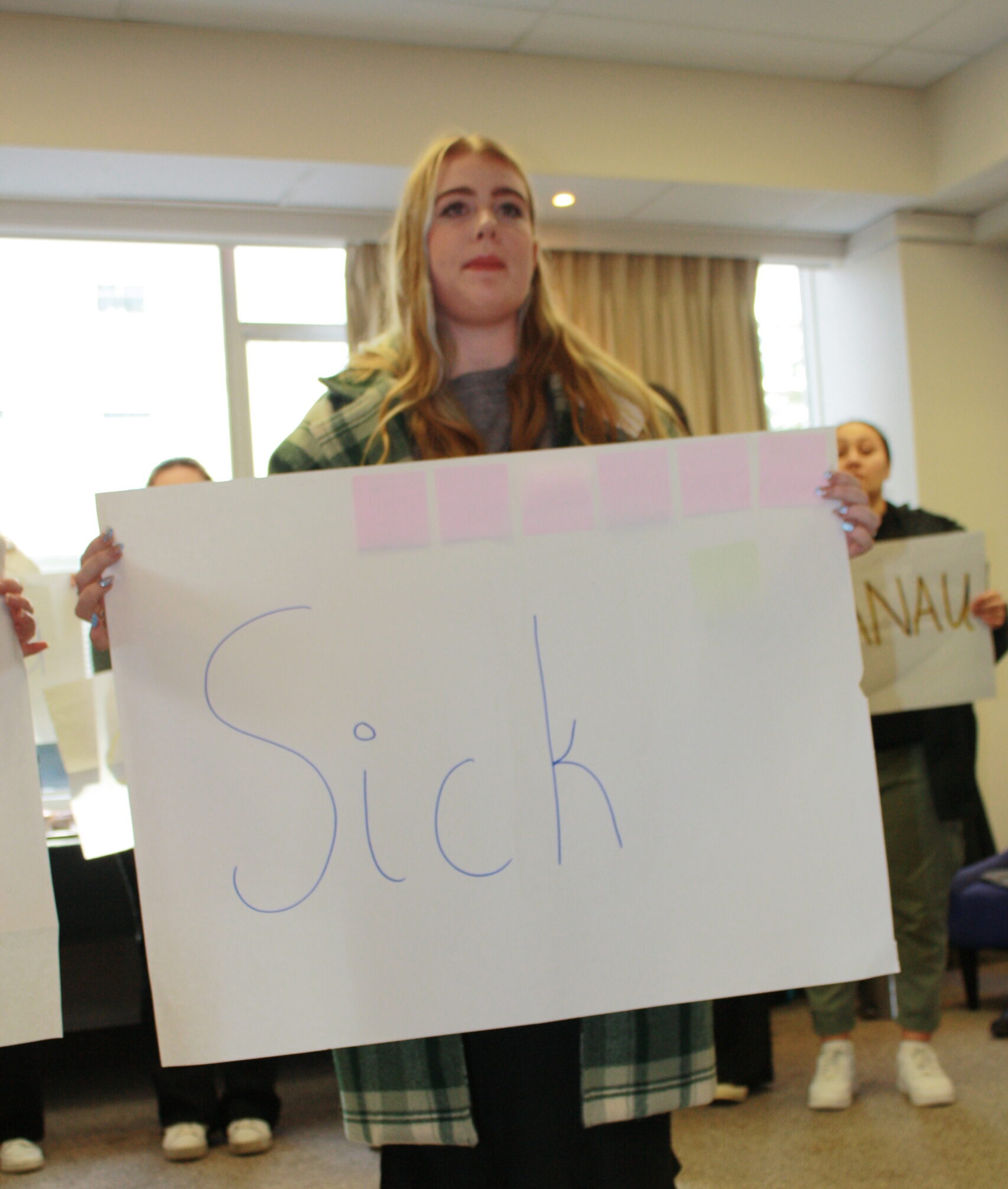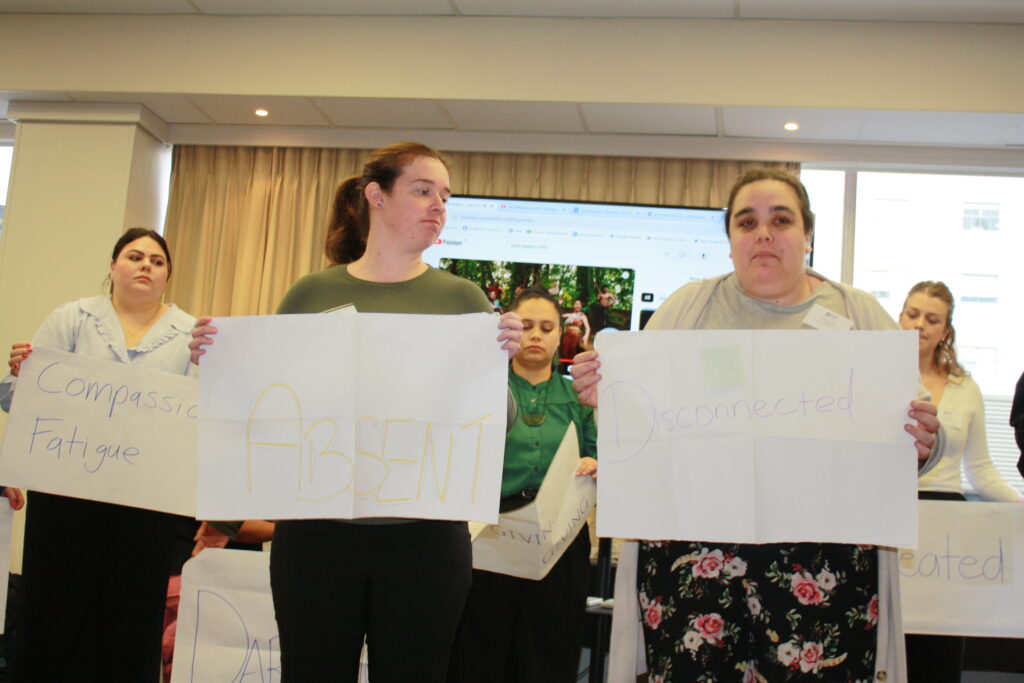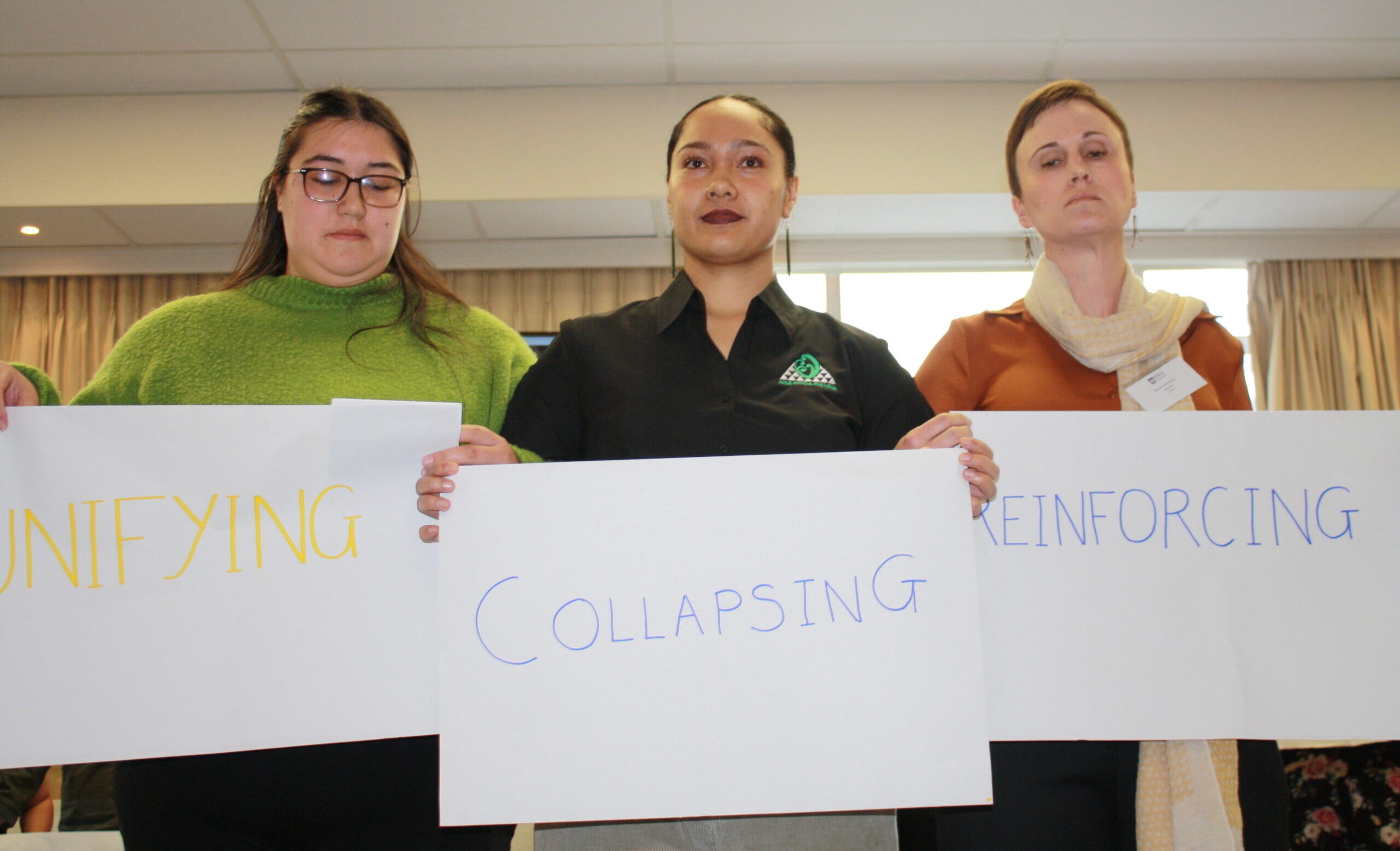About 22 members of NZNO — Tōpūtanga Tapuhi Kaitiaki o Aotearoa’s national student unit (NSU) gathered in Wellington for their annual hui with heads of nursing schools earlier this month. NSU represents about 5000 nursing students across Aotearoa.
In a powerful performance which drew on holistic health framework te whare tapa whā, tauira shared their personal stories while holding signs reflecting their challenges — from being bullied and feeling disconnected, to compassion fatigue and mental health struggles.
‘It’s going to be around what we are facing and how paid placements can actually help relieve some of these barriers so that we, as students, can actually focus on our degree.’
But they also offered solutions — asking their teachers to “stand with us”, be kind and supportive, and advocate for “the future caregivers of your mokopuna”.
“We need you to work in partnership with us — we can’t do this alone,” one said.
Jobs freeze the ‘latest challenge’
NSU co-leader Shannyn Bristowe said recent confusion over whether Te Whatu Ora would have enough hospital jobs for graduates was just the latest of many challenges faced by tauira throughout their studies.
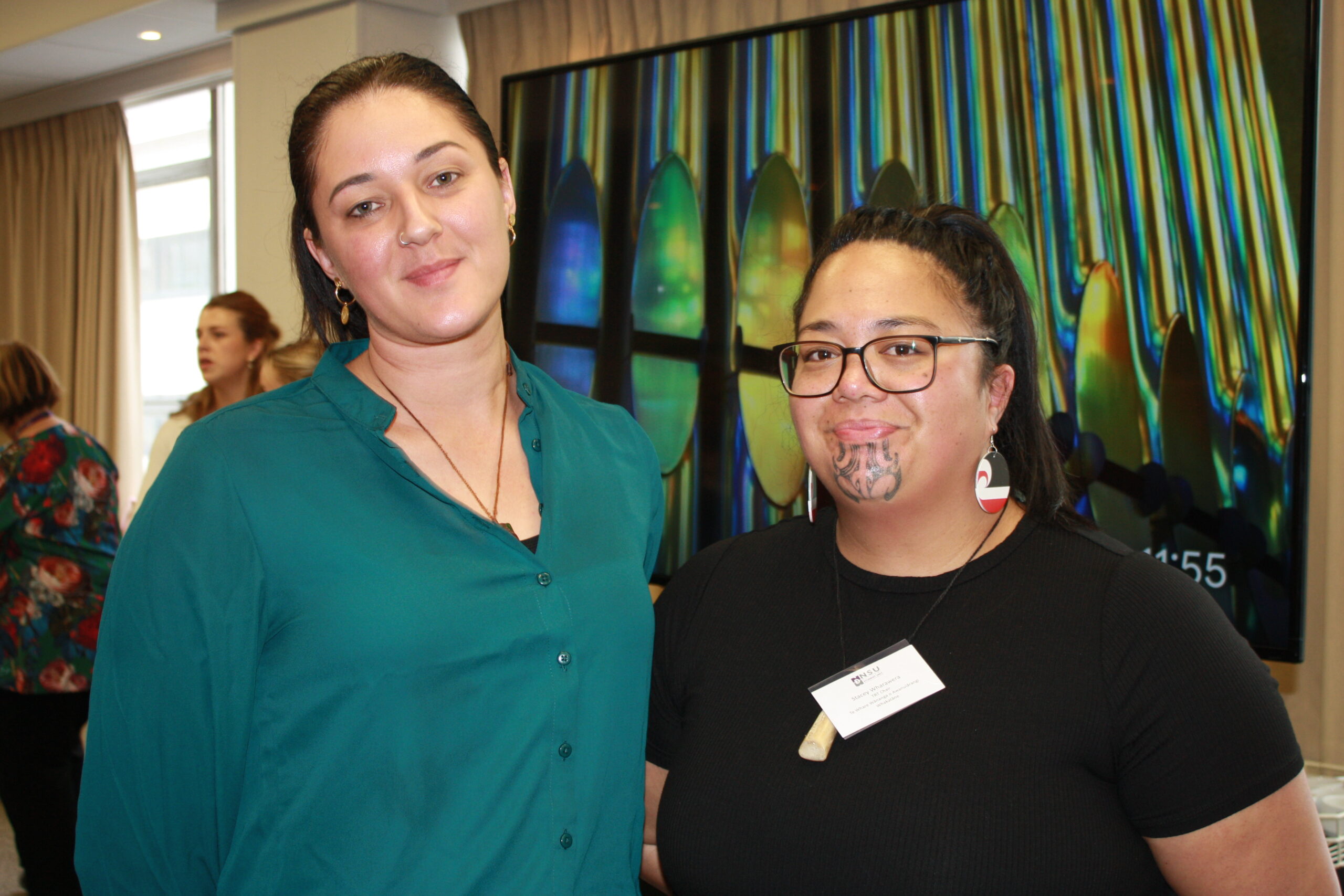
Rising living costs were hitting students hard and clinical placement requirements (1100 hours, including nine weeks in the third year) made it almost impossible for students to work part-time, she said.
A third of students drop out of their nursing studies, many telling an NZNO survey last year that money was the number one pressure.
“Our tauira are going to show you what it is really like for us and how we really do need your support,” Bristowe said. “We ask you to stand with us.”
The students were also planning a campaign for some form of paid support during placements, along with a national day of action to highlight the challenges they faced.
“It’s going to be around what we are facing and how paid placements can actually help relieve some of these barriers so that we, as students, can actually focus on our degree and not have to worry about some of the extra burdens we are facing.”
Co-leader Stacey Wharewera asked kaiako [teachers] to listen “with an open mind”.
About 20 heads of school and Nursing Council representatives at the hui were visibly moved, thanking the tauira for opening up to them — and for offering ideas on how to resolve their challenges.
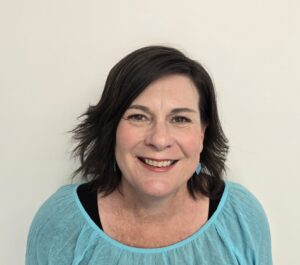
Nursing Education in the Tertiary Sector (NETS) co-chair Tracey Cook later told Kaitiaki the “amazing” presentation was very moving and brought her to tears.
“I was impressed the ākonga [students] offered solutions, some of which we can do immediately. Some is already being achieved in some institutes and some are more long-term and very political,” she said.
NETS was also working on a strategic plan to address some of the barriers raised by the students, she said. “We are trying to influence this space.”
Students asked nursing schools to:
- Recognise te Tiriti.
- Communicate, listen and host regular hui.
- Recognise family commitments when doing clinical rostering.
- Fund tuakana-teina (mentoring) support groups.
- Support a nursing student day of action.
- Help connect students with practical support and services.
- Allow hui, like this one between NSU and heads of schools, to contribute to clinical hours.
We are the foundation — we are whenua‘I am tempted — tempted to move to Australia, because of the better life that it offers. Even though my heart is here, to look after my people.’ ‘I am lost. Lost in the transition process and a job is not guaranteed. I am uncertain of what the future looks like.’ ‘I am disconnected. I feel disconnected from my whenua. My sense of place. My home. Where the bottom line is more important than the frontline service.’ ‘The potential freeze on new vacancies for NETP and NESP makes us feel unease. This will push many students overseas.’ ‘The temptation to seek greener pastures elsewhere is strong. Places that value our work are only one flight away.’ ‘Amid all the challenges we face as nursing students, we find ourselves lost. Uncertain if we’ll even find jobs after our studies.’
|
We are hinengaro (the mind)‘I am bullied. I am torn down by the person who was supposed to uplift me. “You shouldn’t be a nurse”. This is what I heard when I was supposed to be learning and growing.’ ‘Clinical placement is supposed to be a safe place for me to practise — but I don’t feel safe.’ ‘I have compassion fatigue. I’m empty and I have nothing left to give.’ ‘I am darkness — the darkness that envelopes us as we lie awake at night wondering if we even bother finishing this degree. Wondering if it was good that I chose to starve myself so my baby wouldn’t. Wondering, do I actually keep going? What’s the point?’
|
We are wairua (spirit)‘From an empty cup I pour my all, giving endlessly yet I stall.’ ‘I am overwhelmed. 17 hour days. . . Chores, sleep, spelling assessment, motivation lost. Yet through it all, I bear the cost.’ ‘I am wairua yet I am defeated. The load I carry on placements leaves not only my bank but my wairua bank depleted. The highest of standards I’m told I must meet – while working twice the hours to afford to eat. I spend my days preaching health is wealth, yet my hard work feels unnoticed like dust on a shelf.’
|
We are whānau‘I am disconnected. How am I meant to spend time with my whānau when I’m not there to attend whānau events?’ ‘I have no trust. We are continually let down by systems that fail us. Our whānau are the ones who bear the burden.’ ‘Being a fulltime tauira, my whānau miss out on spending time with me. My five-year-old, who is autistic, asked when will he see me, when can he cuddle me and when can he tell me how his day has been at daycare?’
|
We are tinana (physical body)‘I am unhealthy. I am fuelling my body with two-minute noodles and caffeine yet I preach to my patients healthy habits.’ ‘I am exhausted. I am only one person with 24 hours. Yet I am expected to work fulltime while providing for myself and my family.’ ‘I tell my patients to get rest and get a good night’s sleep, but I am unable to do the same.’ ‘I am sick. I only have one body and I am running it to the ground.’
|
We are maru (the roof)‘I am collapsing from all the pressure of tauira, whānau. Collapsing from racism.’ ‘I am reinforcing. We need support – we need each one of you.‘ ‘I am unifying . . . different parts, cultures and kaupapa.’
|



